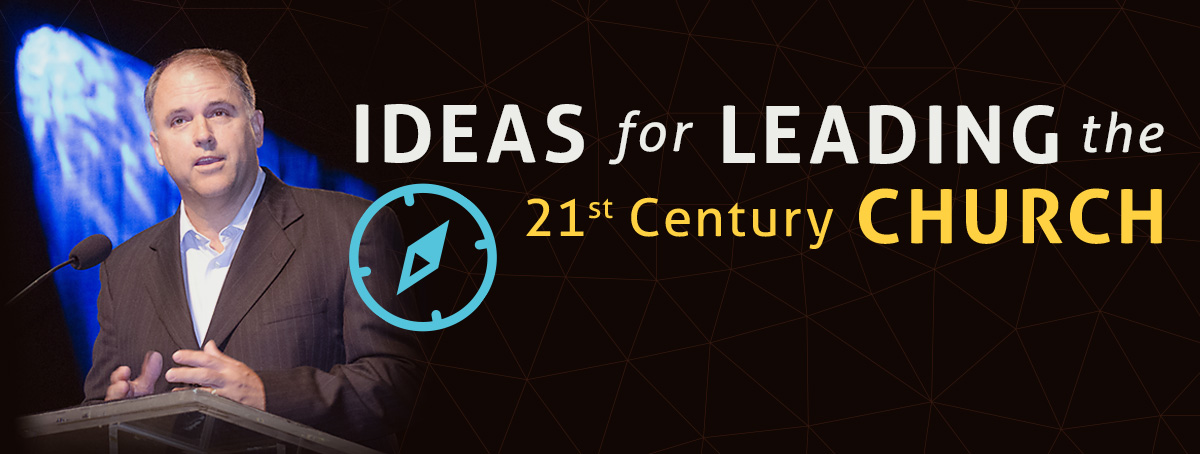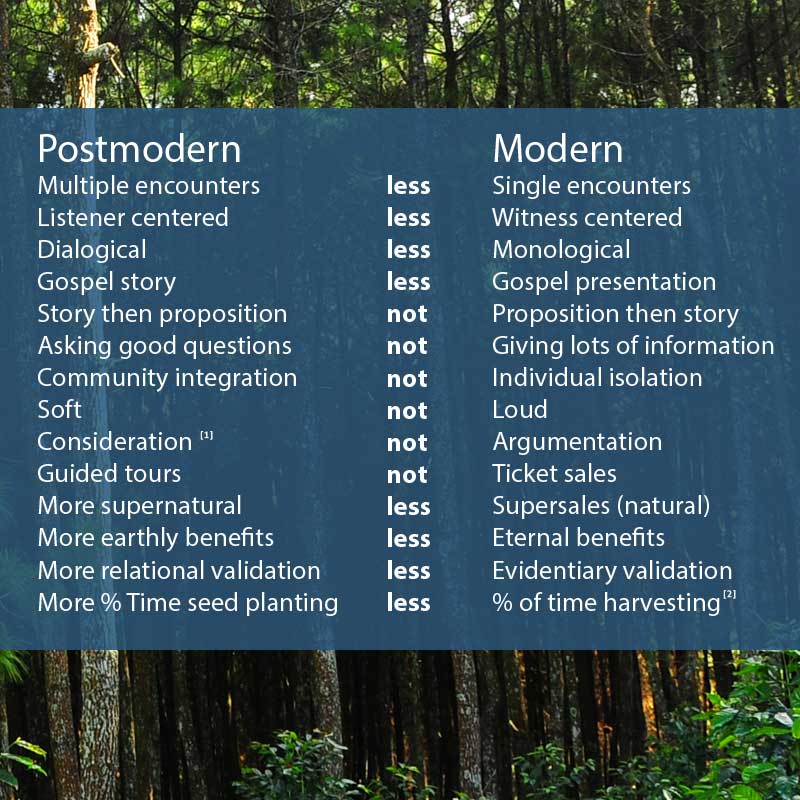We met Lindsay at a mall in New Orleans. My students were completing an assignment to interview people concerning their religious beliefs. Lindsay is a friendly, articulate female in her early 20s, who was eager to share her views on spiritual matters. She has traveled extensively as a daughter of a military family. In our taped interview of Lindsay we discovered some of her beliefs. Read her words, hear her confusion.
I believe in an individual absolute truth.
I believe God is everywhere and in everything. I am smoking God.
To be straightened out with God it takes an extremely open mind and tolerance.
Jesus Christ was a leader. He may or may not be real. I am not sure it matters.
I believe in the so-called miracle. I believe resurrections can happen.
I grew up attending a Baptist church and most every other type of religious group.
I believe in the morals of the Bible.
Lindsay represents a group of people who are farther from a Biblical understanding of God than at any point in the history of the US. Where do we begin with Lindsay? What do we say? Better yet, what are you to say to those who are confused and skeptical around you? How are you to effectively share the Great News of Jesus Christ with the Lindsays who live in your community, maybe even occupy some pews in your church building? In my book The Art of Personal Evangelism, I address these and other tough issues in evangelism. Below I will highlight some of the changes in evangelism that will mark conversations with the postmodern Lindsays in your city.
Multiple encounters less Single encounters
Much personal evangelism of past generations centered around one-time encounters. With people farther from God and farther from Christians in terms of their knowledge and acceptance of Jesus Christ and His church, evangelism is more process oriented, than an event. With Lindsay it will probably take multiple encounters with the gospel message for her to surrender to Christ.
Listener centered less Witness centered
Much of the evangelism training in the last half of the 20th century centered on preparing the witness to talk. The witness would focus on what to say. This is in contrast to training the witness to listen well to the lost. We should ask ourselves questions such as: How is the listener responding to the message and me? Is the listener connecting with the message?
Dialogical less Monological
Most people who process life through a postmodern grid find evangelistic monologue as offensive. You will have to talk with Lindsay, not to her.
Gospel story less Gospel presentation
Christians need to communicate the gospel story to postmoderners, not just tell gospel facts. When people do not grow up in a Judeo-Christian environment, they do not know the Christian story, symbols, doctrines or ethics. Therefore, they need to hear God and man’s story throughout history. Share your testimony with your Lindsays.
Story then proposition not Proposition then story
In most evangelistic encounters propositional statements usually preceded illustration. The witness communicates spiritual facts and then illustrates or explains the spiritual reality. However, in a postmodern context, the witness should communicate the gospel story and then draw out the appropriate spiritual truth. When people do not know or understand God’s story as told in the Bible, they need to get a framework of the story so that individual truths can be seen in the story.
Asking good questions not Giving lots of information
Lindsay needs information, but until the witness asks questions and listens well, the witness will not know what information to give her. When people have little background with the true gospel and also consider themselves spiritual, the witness needs to ask a series of good questions that are presented in an appropriate, inquiring tone. Questions demonstrate genuine interest.
Community integration not Individual isolation
Community is an extremely high value for postmoderners. However, too often our evangelism has been separated from incorporation into a community of faith. For Lindsay to trust Christ, she will probably need to be incorporated into a group of Christians who live out their faith in the midst of her confusion and questions.
Soft not Loud
Among highly trained skeptics and pluralistic thinking people, the volume of evangelism needs to be lowered. Soft, calm, thoughtful words will resonate more clearly than high decibels words. A life lived in calm confidence in God is more likely to be noticed than words shouted from a red-faced, bible waving stranger.
Consideration not Argumentation
Tolerance has been taken to new heights as a value of our society. We can stand firmly on our positions and beliefs and come across with confidence, but in order to get a full hearing, we cannot be perceived as trying to force our beliefs on others. We can, however, skillfully ask Lindsay to consider our faith in light of her beliefs. After all, our beliefs are Biblical and our God desires to reveal Himself. The implications of the resurrection and Jesus’ claim to be God are good doctrines to get the lost person to consider.
Guided tours not Ticket sales
Because personal evangelism usually involves a process, the witness needs to provide a guided tour of what it means to be a follower of Christ while presenting the claims of Christ. The Christian cannot simply offer tickets into heaven. I recognize that no informed Christian would make such an approach, but I am referring to the perception of the lost person. The spiritually seeking desire to see the Christian on a spiritual journey themselves. The lost want us to walk beside them and provide answers to questions along the journey.
More supernatural less Supersales (natural)
Evangelism is a frontal attack on the gates of hell. Therefore, we can expect to engage in battles that involve spiritual beings, be they from God or representing Satan. People will be drawn more out of the supernatural movement of God than the natural abilities of the witness. It is God who desires to draw Lindsay unto himself.
I will be surprised if we do not see an increase in the number of recognizable spiritual encounters. Christians need to develop discernment as it relates to spirits, because not everything that is supernatural is from God. Satan is a masterful counterfeiter.
More earthly benefits less Eternal benefits
The wise witness needs to invest more time discussing the earthly benefits and costs of following God, while investing less percentage of time discussing the eternal benefits. In the scheme of things, the eternal benefits dramatically outweigh any earthly benefits. However, as we listen to people talk about their marriage or finances or disappointments, we need to hear opportunities to talk about how our relationship with Jesus has made a difference in that area of our life.
More relational validation less Evidentiary validation
Lindsay determines truth (reality) in different ways than people did in previous generations. I believe that postmoderners place a greater weight on relationships than factual validation. Evidence is important, but there are still mysteries about God. Postmoderners are more likely to seek to determine how their friends are responding or feeling about the message of Christ.
More Time Planting Seeds less percentage of Time Harvesting
Much can be learned from the laws of the harvest, such as you reap what you sow, reap more than what you sow, and later than you sow. With Postmoderners, we will need to invest significant time and resources in sowing seeds for the harvest. If we do not sow seeds, we will not harvest. Dr. Chuck Kelley stated, “we are using harvest approaches in an unseeded generation.” This does not mean that we can no longer harvest, because without the goal of harvesting, there would be no reason to plant. However, we must think of evangelism in terms and methods beyond that of just harvesting.
Your Lindsays can be led to Christ. It begins with engaging them and asking questions to help them reflect on their own beliefs. For more insights, you will find additional helps in my book on the subject, The Art of Personal Evangelism: Sharing Christ in a Changing Culture.
[1] Thom Wolf in his oral presentation “Postmodernity and the Urban Church Agenda,” at the American Society for Church Growth Annual Conference, Orlando, FL, November 1997 made the case for asking the lost person to consider the possibility of the resurrection and then the implications for their life it true.
- Norman Kraus in An Intrusive Gospel? Christian Mission in the Postmodern World (Downers Grove, IL: IVP), p. 19 asserted, “By implication, postmodern presuppositions challenge traditional evangelism as cultural arrogance. They throw suspicion on a service motivation as disguised self-serving….Thus whether we agree with these postmodern implications or not, they demand a change in attitudes, modes of communication and definitions of witness and service.”
I do believe we can and should communicate directly with postmodern people about the implications of a decision, but initially the emphasis will be consideration and allow the Holy Spirit to work.
[2] This material was first presented in paper “Evangelism in an Increasingly Postmodern America,” ETS Regional Meeting in New Orleans, March 26, 1999 and later appeared in the ASCG Journal, “The Evangelistic Conversation in An Increasingly Postmodern America.”

